A Doll’s House
Comprehensive Storyform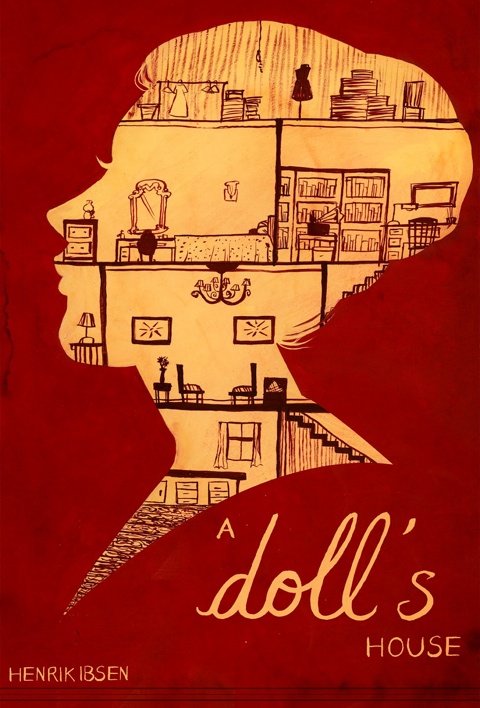
The following analysis reveals a comprehensive look at the Storyform for A Doll’s House. Unlike most of the analysis found here—which simply lists the unique individual story appreciations—this in-depth study details the actual encoding for each structural item. This also means it has been incorporated into the Dramatica Story Expert application itself as an easily referenced contextual example.
Story Dynamics
8 of the 12 essential questions
- Change
- Main Character Resolve
Once it is clear that Torvald puts himself and his reputation before his wife, Nora realizes she is no longer in love with him, gives her wedding ring back, and prepares to leave him.
- Start
- Main Character Growth
Nora must stand on her own and start a new life.
- Be-er
- Main Character Approach
As a child in her father’s home, and as a wife in her husband’s home, Nora does everything in her power to adapt herself to her environment-even to the detriment of her self-esteem and peace of mind:
“It’s perfectly true, Torvald. When I was at home with Papa he told me his opinion about everything, and so I had the same opinions; and if I differed from him I concealed the fact, because he would not have liked it. He called me his doll child, and he played with me just as I used to play with my dolls. And when I came to live with you…I was simply transferred from Papa’s hands to yours. You arranged everything according to your taste, and so I got the same tastes as you-or else I pretended to.” (Ibsen, 1879, p. 195)
- Female
- Main Character Mental Sex
Nora effectively assesses what she needs to do to maintain the balance in her marriage.
- Decision
- Story Driver
Mrs. Linde decides to visit Nora; Nora decides to forge her father’s signature to obtain a bond; Krogstad decides to threaten Nora with exposure if she doesn’t help him keep his position; Nora decides to leave her husband; and so forth.
- Optionlock
- Story Limit
Nora and Torvald’s marriage will strengthen if only “the wonderful thing happens”-it doesn’t.
- Failure
- Story Outcome
Nora’s decision to leave Torvald ends their marriage.
- Good
- Story Judgment
By leaving Torvald, Nora will have the opportunity to explore who she really is and learn to stand on her own.
Overall Story Throughline
"Keeping House, Keeping Secrets"
- Physics
- Overall Story Throughline
Nora endeavors to maintain a happy marriage; Mrs. Linde comes to town looking for work (and Krogstad); Krogstad attempts to save his job and rehabilitate his nature; Torvald prepares to take on the position of bank manager; Dr. Rank readies himself for death.
- Understanding
- Overall Story Concern
Nora makes certain that Mrs. Linde understands she is not a superficial creature, but a strong woman who used her intelligence and wit to save her husband’s life; Krogstad is concerned that Mrs. Linde understand the desperate lengths he had to go to in the past; Dr. Rank informs Nora when he sends one of his cards with a black cross upon it, she is to understand the process of death has begun for him; Torvald cannot understand what he considers is Nora’s betrayal; and so forth.
- Senses
- Overall Story Issue
What Mrs. Linde sees in the Helmer household she interprets as concealment and falsehood; Krogstad senses Nora’s desperation and determines she may be contemplating suicide; Torvald fails in fully employing his senses to correctly interpret his wife’s actions and emotions; Dr. Rank’s impending death heightens his senses:
“‘Why shouldn’t one enjoy everything in this world?-at any rate as much as one man and as long as one can. The wine was capital-’” (Ibsen, 1879, p. 185)
- Interpretation
- Overall Story Counterpoint
- Overall Story Thematic Conflict
Senses vs.Interpretation - Aware
- Overall Story Problem
Thinking of others to the exclusion of oneself is the source of problems in the Objective Story, although Torvald claims “‘No man will sacrifice his honor for the one he loves’” (Ibsen, 1879, p. 199), Nora points out that “‘It is the thing hundreds of thousands of women have done’” (Ibsen, 1879, p. 200); Mrs. Linde’s sensitivity to her loved ones without regard to her own needs has left her alone, a childless widow of a loveless marriage-arranged only to provide for her bedridden mother and two younger brothers. As a physician, Dr. Rank is conscious of other people’s disorder’s without considering his own illness.
- Self-Aware
- Overall Story Solution
Mrs. Linde becomes self-appreciating and allows herself happiness by planning to marry her first love, Krogstad. Once he is certain his own end is near, Dr. Rank takes the time to appreciate his own existence; and so forth.
- Perception
- Overall Story Symptom
Mrs. Linde perceives Nora to be superficial; Torvald perceives Nora as his “doll”; Nora chooses to see her husband as a man who loves her absolutely and will protect her at all costs; it is Nora’s perception that once she pays her debt and obtains her bond back, her problems will be resolved; and so forth.
- Actuality
- Overall Story Response
After spending time in the Helmer household, Mrs. Linde is able to determine the true state of affairs; Dr. Rank tells Nora the true state of his heart-he is in love with her; Mrs. Linde accepts Krogstad for who he actually is; and so forth.
- Conditioning
- Overall Story Catalyst
Mrs. Linde’s observation of how the Helmers are accustomed to interacting, leads her to change her mind about enabling Nora in her deception, and making sure Torvald will discover the truth. Torvald discovers the truth when he conforms to his habit of reading his daily mail, even after a late night at the fancy-dress ball.
- State of Being
- Overall Story Inhibitor
Because Nora is slow to realize her true self, an honest understanding between her and Torvald is long in coming; Dr. Rank’s revelation of his true self to Nora, and his feelings about her, stops her from asking him for a favor, a favor that may have put an end to her dilemma.
- Doing
- Overall Story Benchmark
Mrs. Linde makes progress towards fulfilling an empty life as she relocates to the Helmer’s town, enlists Nora’s help in finding a job, and revives her relationship with her former love, Krogstad; Krogstad is not satisfied with the slow progress he is making in rehabilitating himself, avoiding dishonorable acts and working his way up in the bank are not enough; the more Nora is able to do to pay off her debt, the more progress she feels she is making toward becoming carefree; and so forth.
- Overall Story Throughline Synopsis
It is Nora’s wish to maintain her happy household; its only shadow being the payment of her debt to Krogstad. When Krogstad, driven by the fear of losing his position (and therefore, any chance at respectability) at the bank, ups the ante and threatens to blackmail Nora with exposure of the bond she forged, she frantically tries to satisfy his demand that she use her influence with her husband (the new bank manager) to keep his job. As Nora is unable to comply, Krogstad exposes her past actions to Torvald, who turns on Nora. Nora, expecting her husband to stand by her, is hurt and angered by his reaction. Once Krogstad, redeemed by the love of Mrs. Linde, returns the bond to Torvald, he forgives Nora and prepares to resume their marriage. In Nora’s eyes, the marriage is irretrievably damaged, and she leaves.
Additional Overall Story Information →
Main Character Throughline
Nora — Wife
- Mind
- Main Character Throughline
Nora maintains the conviction that if she can keep Torvald from discovering her past indiscretion, all will be well in their marriage.
- Memory
- Main Character Concern
Nora is concerned with recalling the difficulty of obtaining the money necessary to save her husband’s life.
- Evidence
- Main Character Issue
Krogstad has evidence that Nora forged her father’s signature and is blackmailing Nora to influence her husband to keep him on at the bank; Nora’s adherence to this pressure serves to arouse Torvald’s suspicions.
- Suspicion
- Main Character Counterpoint
- Main Character Thematic Conflict
Evidence vs.Suspicion - Aware
- Main Character Problem
Nora is aware of her husband and children’s needs, without paying attention to her own.
- Self-Aware
- Main Character Solution
Once Nora chooses to be self-aware, she will be a better person for herself and others:
“I believe that before all else I am a reasonable human being just as you are-or, at all events, that I must try and become one…I can no longer content myself with what most people say or with what is found in books. I must think things over for myself and get to understand them.” (Ibsen, 1879, p. 197)
- Desire
- Main Character Symptom
Nora focuses on the motivation to change her situation.
- Ability
- Main Character Response
Nora is able to improve her situation by work:
“Well, then, I have found other ways of earning money. Last winter I was lucky enough to get a lot of copying to do, so I locked myself up and sat writing every evening until quite late at night. Many a time I was desperately tired, but all the same it was a tremendous pleasure to sit there working and earning money. It was like being a man.” (Ibsen, 1879, p. 130)
- Falsehood
- Main Character Unique Ability
If Nora can maintain the fabrication she has created-her happy marriage will be maintained as well.
- Fate
- Main Character Critical Flaw
Try as she might to prevent Torvald from discovering the truth, it is inevitable he find out about her past indiscretion, which will have a tremendous impact on their future (or lack thereof) together.
- Preconscious
- Main Character Benchmark
Nora judges Torvald’s true feelings for her by his immediate response to her confession.
- Main Character Description
“Warm, vibrant, childish…a devoted wife and mother who romps with her children…” (Flaxman, 1959, p.9)
Additional Main Character Information →
Influence Character Throughline
Torvald Helmer — Husband
- Universe
- Influence Character Throughline
Torvald is concerned with his and his family’s status in the home and community.
- Past
- Influence Character Concern
Krogstad’s past misconduct assures him of losing his position at the bank, and his past relationship with Torvald determines there is no chance of Torvald trying to understand he is a changed man; Torvald alludes to Nora’s father’s past transgressions, and how they may have influenced his wife’s nature; Torvald has no desire to share his wife with anyone from her past; and so forth.
- Prediction
- Influence Character Issue
Torvald is deciding upon the future state of affairs at the bank, and fending off his wife’s efforts to change the course he has pre-determined; when Torvald learns of Nora’s forgery and the impending ruination of the Helmers’ reputation, he determines how they will act in the future to minimize any damage done to their image-his plans are halted by Krogstad’s returning Nora’s bond.
- Interdiction
- Influence Character Counterpoint
- Influence Character Thematic Conflict
Prediction vs.Interdiction - Inertia
- Influence Character Problem
Torvald has established what he thinks is the perfect marriage, based on his ideals and what he believes to be the right way of doing things, and he wants to keep it that way:
Helmer: Nora-can I never be anything more than a stranger to you?
Nora: Ah, Torvald, the most wonderful thing of all would have to happen.
Helmer: Tell me what that would be!
Nora: Both you and I would have to be so changed-Oh, Torvald, I don’t believe any longer in wonderful things happening. (Ibsen, 1879, p. 202)
- Change
- Influence Character Solution
If Torvald could change his possessive and unbending nature, he would have a chance at a happy marriage.
- Perception
- Influence Character Symptom
Torvald’s perception of Nora as a doll, (not a real woman) and their life in the doll’s house (not a real marriage), causes problems for Nora, and ultimately, for himself.
- Actuality
- Influence Character Response
Torvald’s actual nature turns Nora away from him.
- Destiny
- Influence Character Unique Ability
Torvald’s destiny as bank manager is what forces Krogstad to put pressure on Nora.
- Truth
- Influence Character Critical Flaw
Torvald values the truth more than Nora.
- Progress
- Influence Character Benchmark
Torvald measures the progress he is making in his career by how it affects his status in the community.
- Influence Character Description
Self-righteous, concerned with his status in the home and in the community.
- Influence Character Throughline Synopsis
Torvald Helmer, a pompous and self-satisfied man, is preparing to take on an important position of bank manager. He does not understand why his wife, a woman he considers no more than a decorative doll, pleads with him to retain Krogstad, a shady lawyer and friend of his past. Once he finds out Nora had borrowed money (and forged her father’s signature) from Krogstad, he turns on his wife, despite the fact she did it to save his life. He is willing to forgive and forget after Krogstad returns the bond, but it is too late-Nora leaves him.
More Influence Character Information →
Relationship Story Throughline
"The Wonderful Thing"
- Psychology
- Relationship Story Throughline
Nora and Torvald come into conflict because their ways of thinking differ; Torvald’s basis of evaluation is honor, Nora’s is love.
- Conceptualizing
- Relationship Story Concern
What Nora visualizes as to what makes a happy marriage is at odds with what Torvald values and sees as important.
- Situation
- Relationship Story Issue
Nora and Torvald’s status as a respectable married couple must be maintained, regardless of circumstances that may cause difficulties, as explained by Torvald:
“‘The matter must be hushed up at any cost. And as for you and me, it must appear as if everything between us were just as before-but naturally only in the eyes of the world’” (Ibsen, 1879, p. 191).
- Circumstances
- Relationship Story Counterpoint
- Relationship Story Thematic Conflict
Situation vs.Circumstances - Aware
- Relationship Story Problem
Nora submits to Torvald’s awareness of what he thinks is the right way to run a marriage, keeping the two from ever addressing their personal issues.
- Self-Aware
- Relationship Story Solution
If each becomes aware of their own concerns they stand a chance of a happy marriage, but as Nora becomes self-aware, and Torvald does not, their marital problems are not solved.
- Inequity
- Relationship Story Symptom
Nora is subjected to Torvald having the upper hand in their marriage, emotionally and economically.
- Equity
- Relationship Story Response
Nora thinks once Torvald’s salary increases, and once she has paid off her loan to Krogstad, her marriage will be stable; Torvald has no intention of their marriage ever achieving emotional or financial parity.
- Sense of Self
- Relationship Story Catalyst
Torvald’s concern for his self and family’s image, and lack of concern for Nora’s feelings, hastens the breakup of their marriage.
- Instinct
- Relationship Story Inhibitor
Nora’s instinct to keep her doings away from Torvald impedes understanding between them.
- Being
- Relationship Story Benchmark
The lack of growth in the Helmers’ marriage is based upon how well Nora fulfills the role of a little doll to Torvald’s role of the benevolent master.
- Relationship Story Throughline Synopsis
Nora and Torvald operate within their marriage according to the rules Torvald has set forth. Because each has a different way of thinking, conflict occurs when Nora steps outside these boundaries, even though it is to save Torvald’s life.
Additional Relationship Story Information →
Additional Story Points
Key Structural Appreciations
- Understanding
- Overall Story Goal
The goal of common concern is Torvald and Nora maintaining a happy marriage, with a complete and honest understanding between them.
- Conceptualizing
- Overall Story Consequence
As Torvald fails to understand Nora, he must visualize a life without her; Nora must visualize a life without her husband and children.
- Past
- Overall Story Cost
In order to achieve the goal of understanding between Nora and Torvald, the past must be exposed, which effectively destroys the marriage.
- Memory
- Overall Story Dividend
Mrs. Linde and Nora reminisce about their days as schoolgirls; Nora has fond memories of her Nurse raising her; Dr. Rank has happy memories of his time spent in the Helmer household; Mrs. Linde’s memory of the love she and Krogstad shared brings her to town; and so forth.
- Doing
- Overall Story Requirements
Krogstad must write a letter to Torvald exposing Nora’s actions; Mrs. Linde must stop Krogstad from retrieving his letter before Torvald reads it; Nora must let go of her fear of Torvald discovering her dealings with Krogstad; Torvald, upon discovering the truth, must stand up for his wife.
- Being
- Overall Story Prerequisites
Torvald has to fulfill the role of bank manager; Mrs. Linde must be a good friend to Nora; Nora plays the role of a doll to Torvald’s role of benevolent master; and so forth.
- Progress
- Overall Story Preconditions
The way things are going, Krogstad’s position at the bank is in jeopardy with Torvald assuming the job as bank manager; for Krogstad, Nora repaying the loan is no longer sufficient-she must help him save his position at the bank.
- Preconscious
- Overall Story Forewarnings
Torvald’s immediate response to Nora’s entreaties on Krogstad’s behalf is negative; Nora instinctively hides the forbidden macaroons from Torvald; when Dr. Rank confesses his love to Nora, she instinctively moves away, and so forth.
Plot Progression
Dynamic Act Appreciations
Overall Story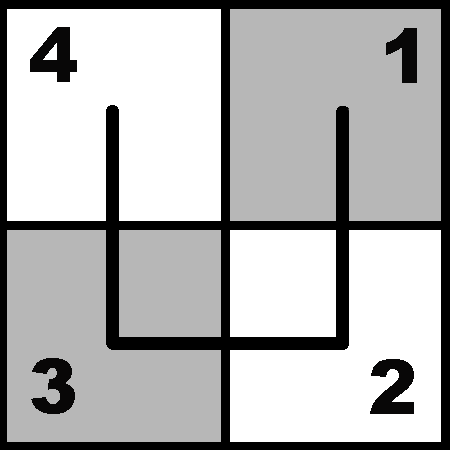
- Doing
- Overall Story Signpost 1
The Helmers’ household prepares for Christmas; Mrs. Linde arrives in town to renew her friendship with her childhood school-mate, Nora, and to look for work; Krogstad meets with Torvald in regard to his position at the bank; and so forth.
- Learning
- Overall Story Signpost 2
Krogstad asks Nora if the woman he saw Torvald with was Mrs. Linde, and if so, is she to have an appointment (his) at the bank; Nora learns that Krogstad has determined she had forged her father’s signature; Nora learns that the law cares nothing for motives; and so forth.
- Obtaining
- Overall Story Signpost 3
Nora wants to get her bond back; Dr. Rank lets Nora know he would give his life for her sake; Krogstad wants to obtain Torvald’s help in rehabilitating his reputation; and so forth.
- Understanding
- Overall Story Signpost 4
Mrs. Linde tries to make Krogstad understand why she had to break with him in the past; Mrs. Linde makes clear to Krogstad she understands why he has acted as he has in the past; Mrs. Linde and Krogstad reach an understanding about their future together; Mrs. Linde explains to Krogstad why he must not retrieve his damning letter:
“‘Helmer must know all about it. This unhappy secret must be disclosed; they must have a complete understanding between them, which is impossible with all this concealment and falsehood going on’” (Ibsen, 1879, p. 180).
Once Torvald has read the letter, he demands of Nora her understanding of her actions. He condemns her without forgiveness until he receives Nora’s bond back from Krogstad. His harsh words and actions lead Nora to understand he has never loved her and she has been served a great injustice.
Main Character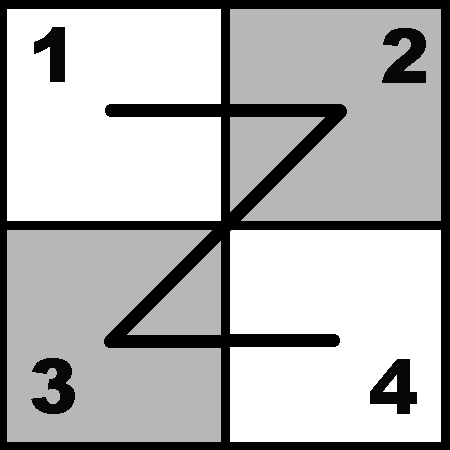
- Memory
- Main Character Signpost 1
Nora shares with Mrs. Linde her recollections of how she borrowed money years before to save Torvald’s life.
- Preconscious
- Main Character Signpost 2
Nora’s unthinking responses to Krogstad’s prodding creates more animosity between the two, undermining Nora’s bid for understanding from the loan shark.
- Subconscious
- Main Character Signpost 3
Nora is driven by the fear of discovery.
- Conscious
- Main Character Signpost 4
Once the truth is out, Nora considers all of Torvald’s words and reactions, and decides she can no longer live with him.
Influence Character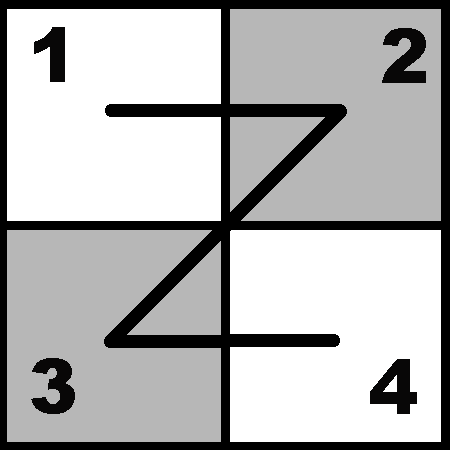
- Past
- Influence Character Signpost 1
Torvald is in the dark about what really happened in the past, how Nora was able to raise the money to make their trip to the south to save his life, and how it has impacted their home life. For example, he recalls how dull the three weeks before last year’s Christmas were when Nora had shut herself away from the family every night, ostensibly to make ornaments, when in reality she was doing copy work to pay off her debt.
- Progress
- Influence Character Signpost 2
Torvald is concerned with moving forward on his new authority at the bank by making use of the Christmas week to implement staff changes.
- Future
- Influence Character Signpost 3
Because of Torvald and Krogstad’s past association as youths, Torvald is concerned that if he does not dismiss Krogstad, it will make his future position in the bank intolerable.
- Present
- Influence Character Signpost 4
Torvald is concerned with what he feels is his wife’s betrayal, and the fact that he is now to live without her.
Relationship Story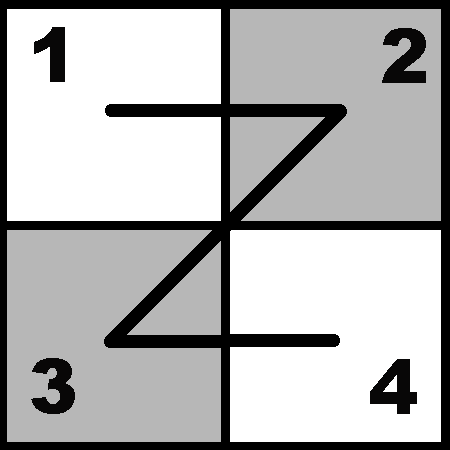
- Conceptualizing
- Relationship Story Signpost 1
Nora and Torvald come into conflict over how Nora plans to spend the money they anticipate from his new position.
- Being
- Relationship Story Signpost 2
Torvald unwittingly airs his views to Nora about how those who do not openly admit their guilt and take their punishment are hypocrites, and “‘such an atmosphere of lies infects and poisons the whole life of a home’” (Ibsen, 1879, p. 147), silencing Nora, who does not think in the same black and white terms.
- Becoming
- Relationship Story Signpost 3
Representative of her daily subjugation, Torvald wants Nora to transform herself into a Neapolitan fishergirl and dance the tarantella for the Stenborg’s fancy-dress ball; Nora wants Torvald to overcome his narrow-mindedness in regard to Krogstad keeping his post at the bank.
- Conceiving
- Relationship Story Signpost 4
Torvald cannot conceive of Nora’s “betrayal”; Nora initially cannot conceive that her husband does not understand the lengths she was forced to take to save him, and how he now refuses to stand by her side.
Plot Progression Visualizations
Dynamic Act Schematics
OS:  MC:
MC:  IC:
IC:  RS:
RS: 




